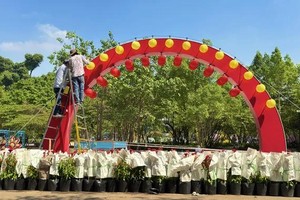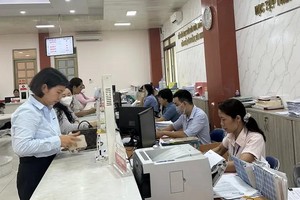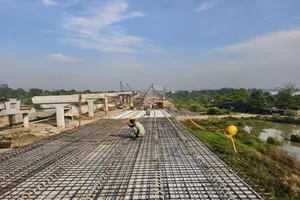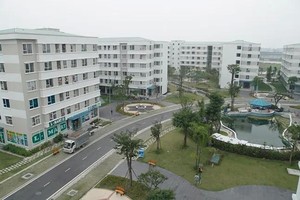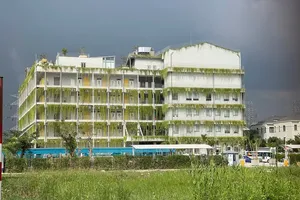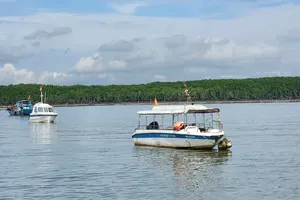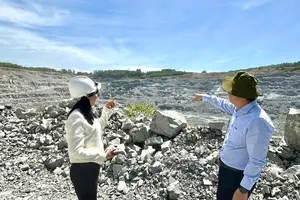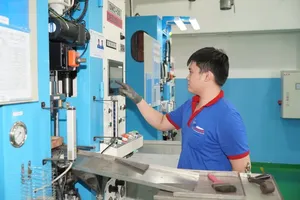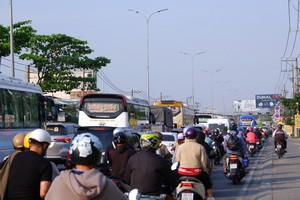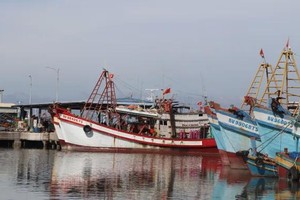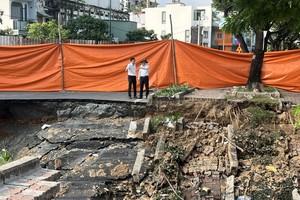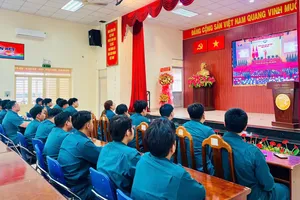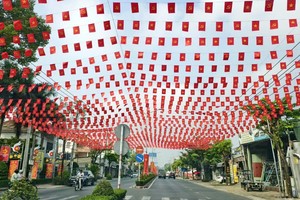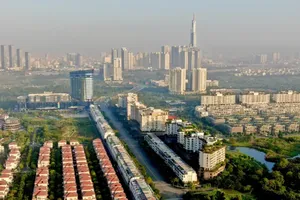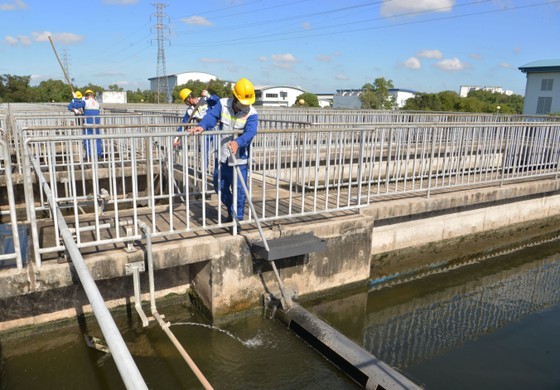 |
Once domestic wastewater - wastewater from residential settlements and services, such as houses and which originates predominantly from toilets, bathrooms, and kitchens - has not been treated to standards, it will not only pollute water sources but also indirectly cause many diseases, affecting people's health and quality of life.
Nearly 88 percent of wastewater is discharged directly into the environment
Ho Chi Minh City is experiencing a high rate of urbanization whereas infrastructure for urban wastewater treatment is lacking and weak.
Statistics from the Department of Natural Resources and Environment of Ho Chi Minh City show that the amount of urban wastewater generated in Ho Chi Minh City is about 1.5 million cubic meters a day, however, roughly 12.6 percent of domestic wastewater is treated while the remaining 87.4 percent is discharged directly to canals and rivers.
Direct discharge of wastewater into canals and rivers not only pollutes surface water sources but also affects people's daily lives.
In recent years, inhabitants living along the banks of the Nhieu Loc - Thi Nghe Canal and the Tan Hoa - Lo Gom Canal are still concerned about the re-occurrence of pollution of these canals because untreated domestic wastewater is discharged directly into the canal every day. Subsequently, people hope that the city will further accelerate investment in building wastewater treatment plants to curb canal pollution for a green and clean environment.
Some districts also said that the authorities have issued administrative sanctions on several violators who have poured liters of untreated wastewater into the city’s waterways affecting people’s health.
For instance, while paying visits to residential areas in Binh Hung Commune in 2022, inspectors from the People's Committee in Binh Chanh District and the Southern Area Management Board discovered that two residential areas discharged untreated wastewater; therefore, inspectors issued a decision for administrative sanctions on violators.
Similarly, the People's Committee in District 7 also collected a total fine of nearly VND1.6 billion paid by developers of three housing projects who poured untreated wastewater into the environment.
Test results of monitoring water environment quality on the Saigon - Dong Nai river system in the first 5 months of 2023 by the Center for Environmental Monitoring under the HCMC Department of Natural Resources and Environment show that the indicators of coliform content, chloride, E.coli, ammonium, TSS at many monitoring points do not meet Vietnamese standards (QCVN 08-MT:2015/BTNMT). In addition, many monitoring indicators on some canals in the city also do not meet standards.
For example, test results have shown that DO, BOD5, COD, NH4+, and Coliform in Ba Bo Canal and of DO, BOD5, NH4+, Coliform, E.coli taken from Thay Cai Canal failed to satisfy Vietnamese standards.
According to the Center for Environmental Monitoring’s analysis, pollution of canals and rivers is still common; therefore, some indicators do not meet standards. Worse, while the amount of untreated wastewater is still discharged directly into canals, and rivers, saltwater intrusion in the interior of the field is also becoming severe.
Experts say that to prevent canal pollution caused by untreated domestic wastewater, city leaders should accelerate the completion of investment projects to build centralized wastewater treatment plants in addition to inspection of waste discharge sources and increased communications to raise awareness of organizations and individuals nearby canals.
According to Chief of Office of the People's Committee of Binh Thanh District Tran Dang Khoa, the list of detailed planning projects at a scale of 1/500 for the period 2020-2021, the district is asking investors for a cluster of 8 residential apartment building in Ward 27 to build a centralized wastewater treatment system according to regulations.
Deputy Director of Ho Chi Minh City Department of Natural Resources and Environment Huynh Van Thanh said that in order to promptly monitor and assess developments in environmental quality to propose prevention and control measures, the city continues to implement programs for environmental monitoring and expanding the monitoring network of environmental components. Moreover, information and monitoring data from automatic monitoring stations on treated wastewater quality in 17 industrial parks, export processing zones and 1 high-tech park must be regularly updated.
In addition, to control the risk of environmental pollution from high-volume waste sources, the Department of Natural Resources and Environment also requires companies that are responsible for managing export processing zones, industrial parks, high-tech parks, and industrial clusters and enterprises discharging large amounts of wastewater must install automatic monitoring equipment and transmit data according to regulations.
